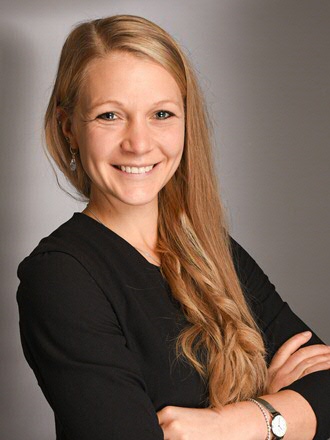Manuela Fritz | Faces of FEB
The Faculty of Economics and Business is a faculty with a great diversity of people who all have an impact, big or small, on science and society. But who are these people? Within ‘Faces of FEB’ we connect with different student s, staff members and researchers of the faculty and give a little peek into their world. This week: Manuela Fritz, a PhD student who focuses on the intersection of health economics and development economics. She has won the Sustainable Society PhD Research Grant a while ago.

1. Can you tell us a little bit about yourself?
Sure, let’s see what I can tell you. My name is Ela, I am 29 years old and originally from Berlin. Yet, a couple of years ago I decided to spend my life in smaller cities to escape the big-city rush and now live in Passau, a tiny city in Bavaria. Why am I then here in Groningen, you might wonder? Well, I am a so called sandwich-PhD, which means that I am enrolled at two universities (obviously one is RUG) and I spend half of my PhD time here in Groningen and the other half at the University of Passau. This gives me the great opportunity to work with two amazing supervisors and to benefit from two academic networks. I am currently in my third year of my PhD and plan to submit my thesis soon. I enjoy this time a lot and I am passionate about my work. If you don’t find me in office, then I am probably away running (I will run a marathon this year) or riding my motorbike (I am a big Yamaha fan).
2. You have won the Sustainable Society PhD Research Grant a while ago. What is the aim of your research and why is this so important?
My research lies at the intersection of health economics and development economics and mainly contributes to innovative solutions for improving public health and health care systems in low- and middle-income countries. In particular, I focus on cost-effective solutions for the prevention and treatment of chronic diseases in Southeast Asian countries.
The work for which I have won the Sustainable Society PhD Research Grant focuses on the detrimental health consequences of climate change. Specifically, I assess the impact of extreme temperatures on the morbidity of individuals that suffer from chronic diseases, such as diabetes or hypertension. This is of great importance since climate change is one of the most pressing societal challenges of the 21st century and will pose a detrimental threat to decent health in the coming decades, with low- and middle-income countries being the most severely affected. On top of that, health care systems in these countries are often not well positioned to combat chronic diseases, since they have focused for a long time exclusively on infectious diseases. Hence, health effects of climate change can be tremendous for these countries, and research on how exactly climate conditions and chronic diseases interplay and which policies are required to counteract this trend are urgently needed.
3. How did you know that this was what you wanted to focus on?
I started to think about doing a PhD during my Master program. By then I took several economic courses and enjoyed especially the statistics and math parts (equations, regressions and data analysis are just fun). But I also wanted to do something that contributes to making the world a better place (even though I know this is almost impossible). When I participated in a course that focused on health economics in developing countries, I knew that I had found what I was looking for. I applied for a PhD in a project called SUNI-SEA (https://www.suni-sea.org/en/) and luckily got the position.
4. What are you using the grant for and how is this going?
I will be using this grant for field research in West Java, Indonesia, to collect qualitative data for the above mentioned study, which is hitherto solely based on quantitative data. I will collect qualitative information on the capacities and limitations of primary health care facilities (so-called Puskesmas, which are the focus of the study) in the light of adverse health effects that might be caused by extreme temperatures. I had to postpone the field work a couple of times due to Covid, but I am currently preparing everything to travel as soon as possible.
5. Sustainability and climate change are becoming more and more important topics nowadays. Is there anything you want us to keep in mind regarding this?
We cannot stop climate change. But everyone can contribute a little to help to reach the 1.5°C goal and to live his or her life in a sustainable manner. Take the bike instead of the car whenever possible, eat responsible, keep flights to a minimum, buy clothes second hand. We all know what works. It will be hard and we will have to leave our comfort zone. But only then we can contribute to keep the earth a livable and healthy place.
